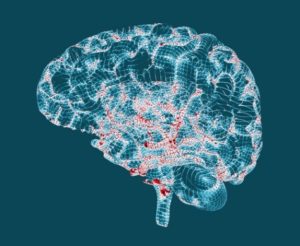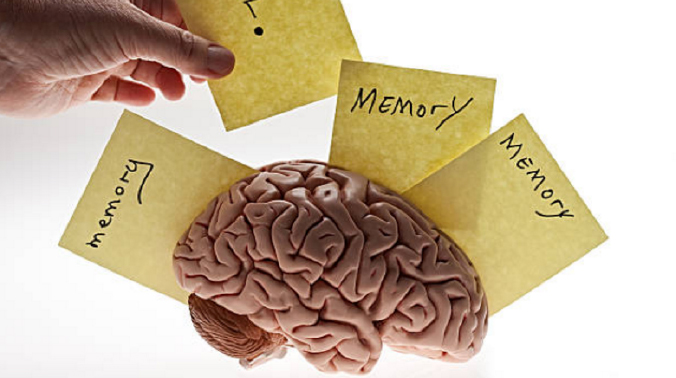Although many have sought the fountain of youth, one thing always remains true — aging is inevitable. We cannot stop or reverse time; and over time, our bodies begin to show signs of wear and tear from the effects of environmental factors, genetics, diet, and exercise (or lack thereof). Whether we grow old gracefully varies considerably from individual to individual. However, we know that as we age, most of us can expect some amount of cognitive decline as part of the normal aging process.
The US population is aging rapidly. More than 43 million people are currently over the age of 65, and the US Census Bureau1 projects the senior population to nearly double to more than 83 million by 2050. Although the rate of dementia in the American population has declined over the last decade according to a study published in the Journal of the American Medical Association2, the increase of the senior population over the next several years means we could see as many as 16 million seniors fighting some form of dementia in the relatively near future.
However, breakthrough studies in the role of the endocannabinoid system and the neuroprotective capabilities of cannabinoid supplementation may give hope to those seeking to prevent a debilitating cognitive decline in their twilight years.
Why Age Affects Cognitive Ability
Brain scans and lab tests have shown that as we age, the structure of the brain changes and portions of the brain shrink. Neurotransmitters in the brain lose efficiency and the endocannabinoid system also slows with age. Similar to how an old computer might slow down over time because of the build-up of unnecessary files, the brain also slows down as it takes longer to retrieve and regurgitate stored data.

The National Institute on Aging3 says forgetfulness is most times just a normal part of the aging process. Taking longer to learn new things, misplacing everyday items, and difficulty remembering are relatively normal behaviors for most aging adults. Although annoying or aggravating, these behaviors are not definitive indicators of a problem.
Most healthy adults can complete complex memory tasks and cognitive tests just as well as their younger counterparts, although it may take them longer. In other older adults, simple problems like these may be the sign of something far more sinister as these symptoms of mild cognitive impairment could be the result of early stages of dementia or Alzheimer’s disease.
Although there will never be a cure for aging, recent studies in cannabis and cannabinoid supplementation are showing promising results in repairing cognitive damage in the brain at the cellular level, as well as protecting otherwise healthy neurons, possibly slowing the effects of age on the human brain.
Cannabinoid Therapy to Treat Cognitive Decline
The stereotypical “Cheech and Chong” image of the average marijuana smoker has led society to think that cannabis, in any amount, will result in memory impairment, mental slowness, and even loss of brain cells. However, recent research out of the University of Bonn in Germany4 shows this simply isn’t the case.
Led by researcher Andreas Zimmer, the study shed light on the incredible potential for THC, the psychoactive component of marijuana, to act as a neuroprotectant and even repair damaged brain cells in older adults.
In their study, Zimmer’s team grouped mice into three age groups: young (2 months), mature (12 months), and old (18 months), and ran them through a series of three basic tests to establish baseline cognitive ability between the groups.
- Water Maze — an exercise requiring the mice to learn and remember how to successfully navigate the maze.
- Location — in this test, mice were given the task of locating a particular object.
- Recognition — where the mice were tested on their ability to recognize their partners.
First, the tasks were conducted as a control, and in all three tests, the mature and old rats performed slower and less efficiently than the young mice. Then the mice were all dosed with uniform amounts of a daily THC regimen.
When the tests were repeated, not only did the older mice outperform the younger mice who were also treated with THC, but they even outperformed the young mice from the control group before they were dosed with THC. Small doses of THC appeared to restore the performance of the older mice so well that they resembled the younger, healthier mice. As the scientists wrote in their summary:
“Together, these results reveal a profound, long-lasting improvement of cognitive performance resulting from a low dose of THC treatment in mature and old animals.”
At the conclusion of the tests, the researchers examined the brains of the mice in an attempt to understand why the THC-treated mice had experienced such profound improvements in their cognitive ability. The cannabinoid supplementation started to repair damaged neurons by growing more synaptic spines, allowing for better communication between neurons and essentially preventing cell death.
Additionally, and perhaps more shocking, is that the genetic pattern in the treated mice had actually been altered from that of the untreated mice and appeared to more closely resemble the brains of the young, untreated mice. Although similar tests have not yet been conducted on humans, the study suggests that small doses of THC in older adults could restore some brain functionality.
Cannabinoid Supplementation to Prevent Cognitive Decline
The Alzheimer’s Association5 lists three factors as being critical in the prevention of dementia in the aging brain:
- Diet — a heart-healthy diet rich in Omega-3, whole grains, and fruits and vegetables is a key factor in maintaining a healthy mind.
- Cardiovascular health — the heart and blood are the lifelines for the brain. Maintaining a healthy weight, blood pressure and cholesterol are all vital in helping prevent dementia and cognitive decline.
- Exercise — exercise increases oxygen and blood flow to the brain.
Interestingly, the key to a healthy brain, by maintaining a healthy heart, may also be related to the endocannabinoid system. In the past, the term “runner’s high” was associated with the release of adrenaline while exercising. However, research has shown that it may be caused by the release of anandamide6, an endocannabinoid produced by the human body which closely resembles THC and produces a similar effect.
If our bodies release cannabinoids during exercise, and cannabinoids are shown to have neuroprotective effects, it only stands to reason that regular exercise could contribute to increased production of our own natural cannabinoids, improving our healing abilities.
Other studies have also shown that the use of CBD, or Cannabidiol, the non-psychoactive component of cannabis can lengthen the effects of anandamide. While CBD, a competitive inhibitor7, races to bind to receptors, it slows down the breakdown of other cannabinoids, thus allowing anandamide to linger within the body longer.
In a world where people are living longer, we must actively pursue preventative measures to common age-related diseases and ailments. Prevention of the onset of cognitive decline could lead to a reduction in the number of seniors suffering from debilitating brain disorders such as dementia and Alzheimer’s.
Marijuana legalization has brought cannabis research to the forefront of emerging medical science in cognitive disorders and many other ailments. Anecdotal stories are emerging from all over the world of how cannabis could be medically beneficial and science is on a mission to catch up. As more studies like these are conducted, the idea of cannabinoids being the long-lost fountain of youth may not be so far-fetched after all.
References:
1 Ortman, J. M., Velkoff, V. A., & Hogan, H. (2014). An Aging Nation: The Older Population in the United States. Washington, D.C.: US Census Bureau.
2 Kenneth M. Langa, M. P. (2017). A Comparison of the Prevalence of Dementia in the United States in 2000 and 2012. Journal of the American Medical Association.
3 National Institute on Aging. (2016). AgePage. Retrieved from NIA: https://www.nia.nih.gov/health/publication/forgetfulness#age
4 Andras Bilkei-Gorzo, e. a. (2017). A chronic low dose of ∆9-tetrahydrocannabinol (THC) restores cognitive function in old mice. Nature Medicine.
5 Alzheimer’s Association. (2017). Dementia Prevention. Retrieved from Alzheimer’s Association: http://www.alz.org/what-is-dementia.asp#prevention
6 Dietrich A, M. W. (2004). Endocannabinoids and exercise. British Journal of Sports Medicine, 536-541.
7 Bornheim LM, e. a. (1993). Characterization of cannabidiol-mediated cytochrome P450 inactivation. Biochemical Pharmacology, 1323-31.

